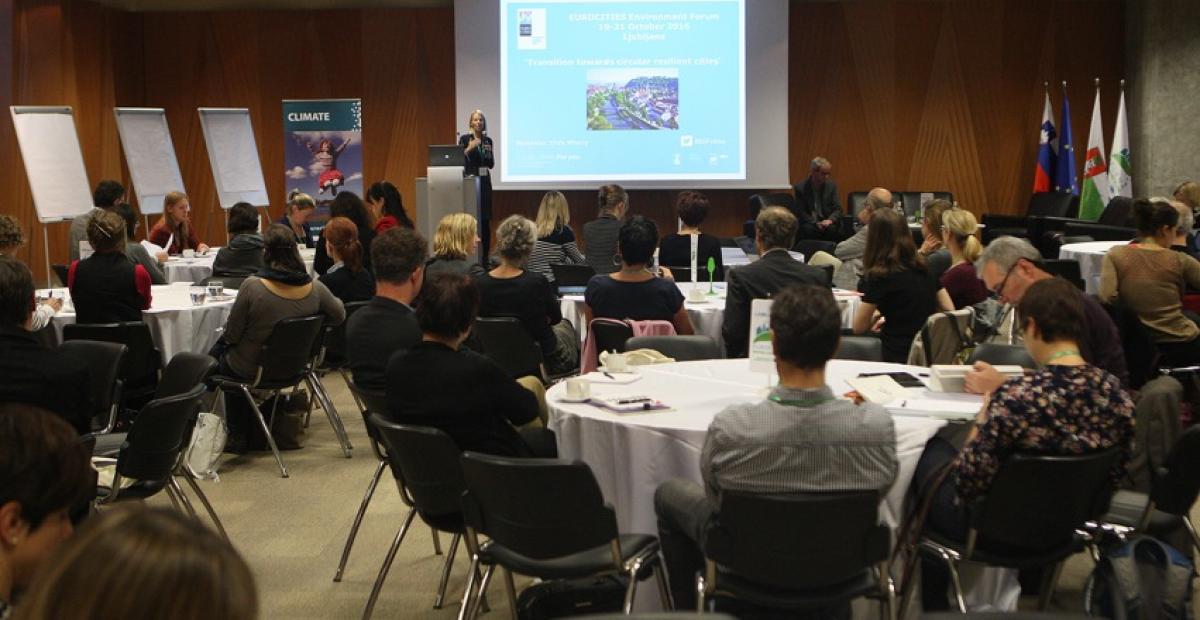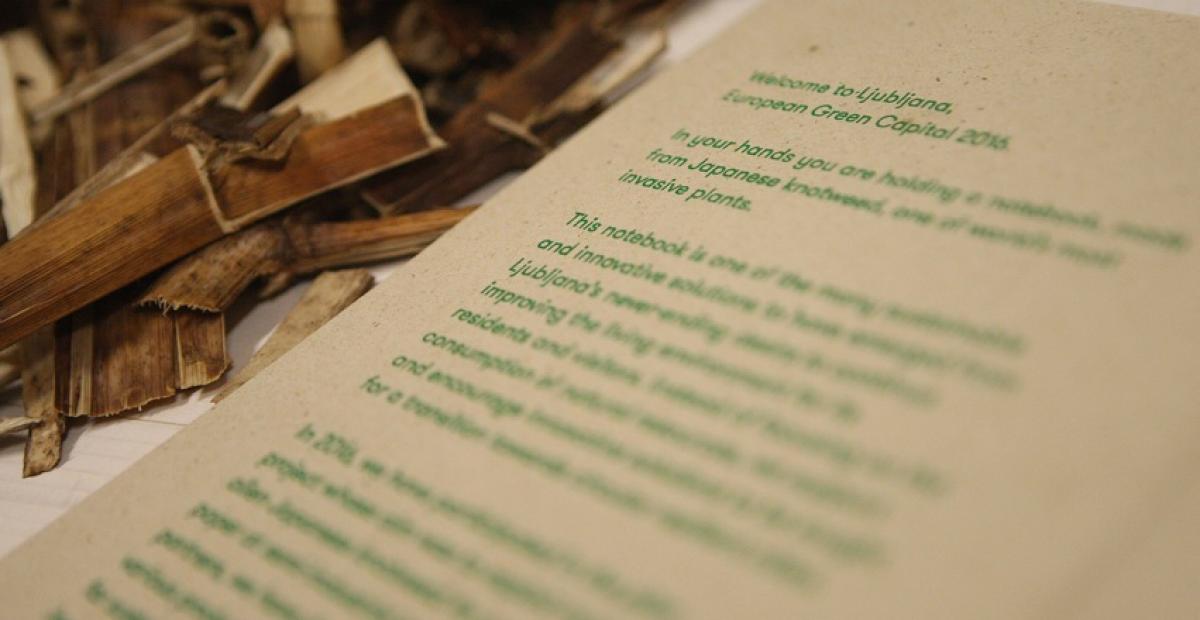Eurocities Environment Forum
From 19 until 21 October 2016, the EUROCITIES Environment Forum was held in Ljubljana, attended by some 115 experts in the field of water, waste, energy efficiency, climate change, biodiversity, green surfaces and air quality.
On the first day of the conference, members of working groups for waste, waters, green surfaces and biodiversity, air quality, climate change and energy efficiency met at the City Hall.
The main part of the conference was held at the Ljubljana Exhibition and Convention Centre. In the introduction of the morning session the head of the Department for Environmental Protection of the City of Ljubljana Nataša Jazbinšek Seršen presented the path Ljubljana took towards the title European Green Capital, followed by a round table on circular economy and a workshop on the same topic, and in the afternoon part of the conference a discussion was held on the adaptation of cities to climate change.
Afterwards, the participants of the forum were able to see some good practice cases in Ljubljana, among them the Celica hostel, the Central Waste Water Treatment Plant Zalog, the regional waste management centre RCERO and the Bee Path, while the Public Housing Fund of the City of Ljubljana presented its project, namely, the passive apartment building on Pipan Street.
Within the framework of presenting good practices in circular economy the City of Ljubljana prepared an exhibition at the Ljubljana Exhibition and Convention Centre featuring the results of the pilot project for processing Japanese knotweed into paper at a semi-industrial level.
For two years already the City of Ljubljana is offering free disposal of removed Japanese knotweed at its collection centres, and from there it is transferred to the incinerator. The pilot project for manufacturing paper from Japanese knotweed is an opportunity to find innovative solutions to deal with this invasive plant and its further uses. Within the scope of the title European Green Capital 2016, a series of voluntary Japanese knotweed removal actions were organised in Ljubljana during which the participants collected as much as 1,520 kg of knotweed, later on processed into 415 kg of paper. The production of paper from Japanese knotweed at a semi-industrial level is in itself a remarkable achievement, and an even bigger one is the production of useful items from this paper – notebooks and paper bags designed by the Re-generacija collective (Re-generation).
Partners of the Japanese knotweed processing pilot project are the City of Ljubljana, Pulp and Paper Institute, public waste management company Snaga, University Botanic Gardens Ljubljana and the Re-generacija collective.
The EUROCITIES network of cities was founded in 1986 by the mayors of six large cities – Barcelona, Birmingham, Frankfurt, Lyon, Milan and Rotterdam – and now there are over 130 biggest European cities and 40 partner cities in the network with over 130 million residents. Ljubljana is a member of the network since 1995, and since 2015 it is also a member of its executive board.



